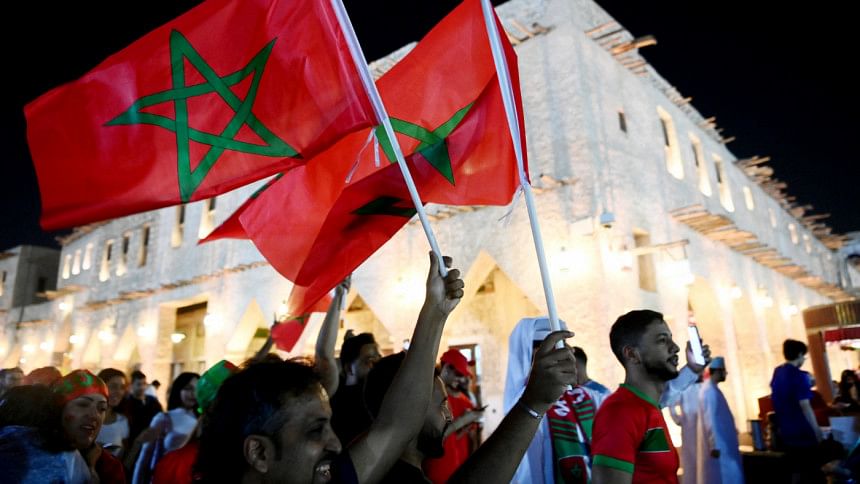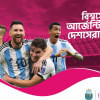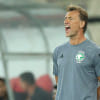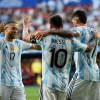Morocco targets diplomatic goals after World Cup run

Morocco wants to turn admiration for its team's World Cup run into diplomatic capital to secure a bigger role in African soccer and backing for its bid to host the global tournament.
It might also become another weapon in Rabat's diplomatic arsenal to win international support in a long-running dispute over the territory of Western Sahara, where the Algeria-backed Polisario Front movement is seeking independence, analysts say.
When Morocco plays France in Doha on Wednesday, it will be the first African team to reach a World Cup semi final and the most successful from an Arab country by far - bringing out Moroccan flags across the African continent and Middle East.
Senior sources at Morocco's Football Federation said it should help strengthen the country's chances as it plans bids to host the 2025 African Cup of Nations and the 2030 World Cup.
"We have stadiums ready along with the necessary infrastructure and a national team that gained popularity in the continent after becoming the first African team to reach the semi finals," said a federation source who requested anonymity.
Morocco has expanded ties with other African football federations in recent years, helping with training or offering stadiums for World Cup qualifying matches to those in conflict, all of it aimed at widening its influence in Africa and beyond.
The immediate goal may be winning support for hosting soccer tournaments, but foreign policy professor Atik Essaid said soft power tactics were also part of Rabat's bid to win backers in the Western Sahara dispute, underlying much of its diplomacy.
Essaid, who works at Hassan II university in Casablanca, described sporting success as "a means of popular diplomacy".
DIPLOMATIC TOOLBOX
The African Union recognised Western Sahara as a member in 1984 - when it was called the Organisation of African Unity - prompting Morocco to quit. It rejoined in 2017 and has been deepening ties across the continent since then.
Morocco, one of Africa's most industrialised economies with close ties to the European market, has used trade as a major diplomatic tool. State-owned OCP, one of the world's biggest fertiliser producers, has invested in projects across Africa, along with Moroccan banks and other companies.
Rabat has offered visa-free entry for citizens of some African states and has brought thousands of West Africa religious students to study at seminaries linked to Sufi Muslim shrines that have a big regional following.
"Morocco has a comprehensive African policy combining economic, cultural, humanitarian, security and religious dimensions," said a former Moroccan diplomat said.
In soccer, a Moroccan resolution was adopted by the Confederation of African Football denying membership to any entity not recognised by the United Nations - a move aimed at keeping Western Sahara out of international tournaments.
Morocco's soccer federation has signed 47 agreements with African peers, helping train staff and players, and has offered to host matches for those without stadiums meeting FIFA standards.
This and its latest success on the pitch might put Morocco in the running for a successful bid to host the 2030 World Cup, Moncef Yazghi, a Moroccan academic specialising in soccer policy, after several failed efforts.
"Morocco has the legitimacy now to apply again after it proved that it is a great football nation," he said.

 For all latest news, follow The Daily Star's Google News channel.
For all latest news, follow The Daily Star's Google News channel. 








Comments